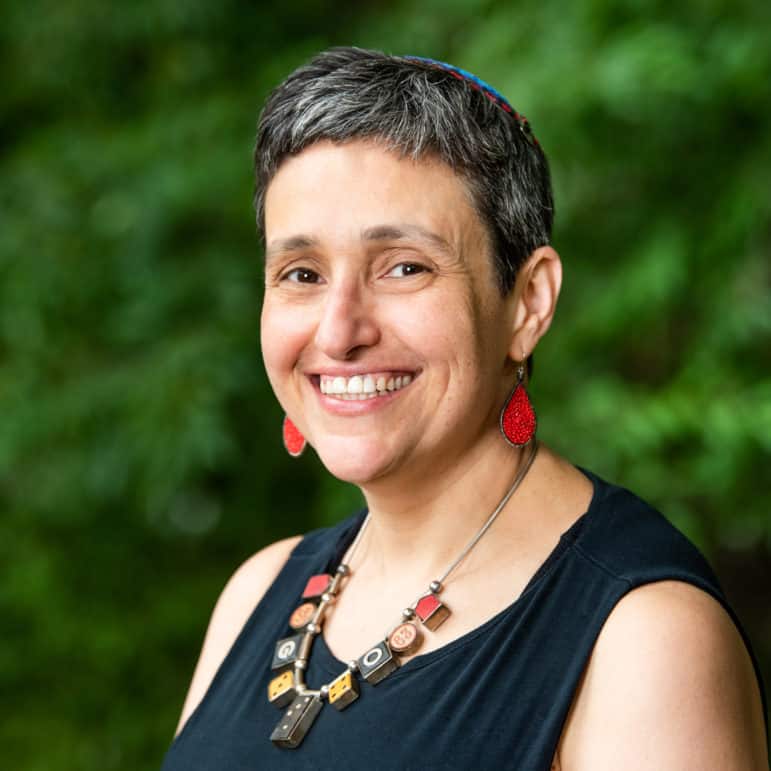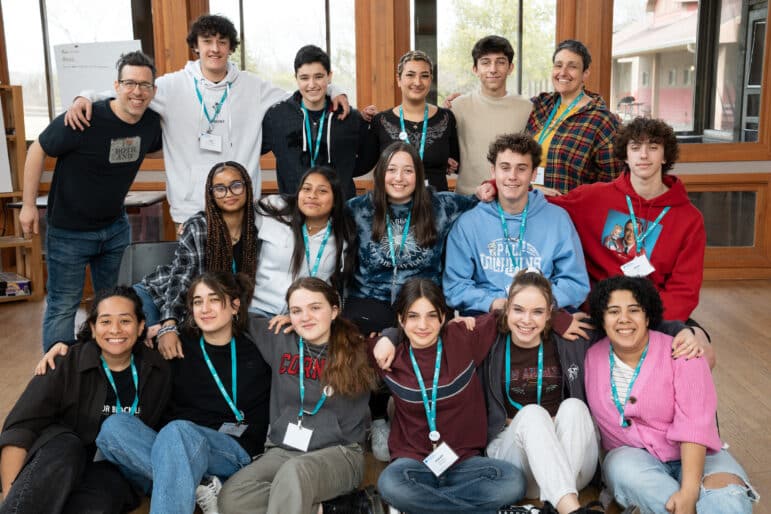Kumi is a unique opportunity for Jewish teens (10th-12th graders) to interrupt racism, antisemitism, and other manifestations of oppression. This teen leadership experience imparts knowledge and skills for exploring justice and equity from a Jewish lens.
Participants will be prepared for bold changemaking on college campuses, in social justice spaces, and wherever else their passions take them. Together, they will contribute to the building of more inclusive communities and movements for justice as Jews. Through their experience in Kumi, participants will be challenged to explore their connection to their own Jewish identity and build the skills to turn their values into action.
Now Accepting Applications
Kumi applications will remain open on a rolling basis for a limited time only, now that the priority application period has ended.
Program Details
Kumi is a retreat-based experience where teens from across the country come together to learn and build a Jewish justice community. Each semester, we run a 4-day in-person retreat with three supporting virtual community of practice meetings to deepen learning.
In the fall, Kumi: Foundation allows teens to learn foundational knowledge for exploring justice and equity from a Jewish lens.
In the spring, Kumi: Exploration invites Kumi alumni to use the history and present of an American city to make real-world connections to the topics they learned in Kumi: Foundation.
One unique aspect of Kumi is our intentional community-building through two tracks: Jews of Color Empowerment and Anti-Racist Allies. In keeping with racial justice best-practices, these two tracks will be learning together and separately over the course of the experience to provide intentional and targeted support of their learning. Each semester-long hybrid experience will help Kumi participants get a strong shared foundation of anti-oppression theory and practice and also provide an opportunity to regularly reconnect to deepen their learning with their cohort.
Background
Kumi (pronounced koo-mee) means “Wake Up!” or “Stand Up!” in Hebrew. This name was chosen to represent the intertwined importance of learning deeply about ourselves and the world around us (“Wake up!”), and the need to use that knowledge to support justice in our community (“Stand up!”). The word Kumi is used to urge the Jewish people to wake up and stand up in the Lecha Dodi, a 16th century poem still sung on Friday nights around the world to hundreds of different melodies. Kumi participants will join a Jewish community dedicated to meaningful exploration of pressing social justice issues and building skills to become well-informed Jews who take justice seriously.
Staff

Beckee Birger is the Director of DEIJ Initiatives (she/her/hers) and Fellowship Director for Kumi. Beckee’s passion for social justice has led her through a variety of jobs, such as special education attorney, AmeriCorp program manager, and career advisor at an education non-profit. She believes engaging people of all ages, but especially youth, in political education and community organizing is critical to our future, and she’s proud to celebrate her Judaism through a deep commitment to social change. In her free time, she’s a co-founder of JCUA’s Kol Or Jews of Color Caucus, a co-facilitator of Tzedek Lab’s Political Educators kabal, and she’s an avid board game player.

Rabbi Tamara Cohen, Chief of Program & Strategy (she, her, hers), guides and supports Moving Traditions’ strategy, program development and partnership work in collaboration with her fabulous colleagues. Tamara knows that Jewishly-engaged, intersectional feminists of all genders can and will change the world. She is proud to have initiated Tzelem and Kol Koleinu and to be working on a new project for older teens to navigate issues of race, gender, sex, antisemitism, and Jewish identity today. Tamara is a board member of Women’s March, on her synagogue’s anti-racism task force and a member of the Bnot Esh Jewish feminist spirituality collective. When Tamara isn’t moving traditions and the Jewish community, she can be found reading and writing poetry, organizing community ritual, walking in Carpenter’s Woods, or having fun with her partner, Dr. Gwynn Kessler and their two children (preferably off screen but also, often, on).
Funding Partners
Kumi is made possible by support from the Shards of Light Foundation and the Isabel P. Dunst Philanthropic Fund, a donor-advised fund of the Jewish Community Foundation of the Jewish Federation of Greater Washington.


